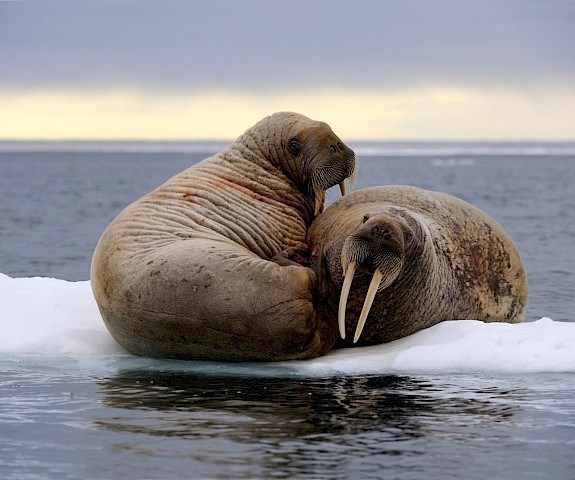A new high-temperature record of 38°C has been confirmed for the Arctic by the World Meteorological Organisation (WMO) on Tuesday, which said it was caused by a heatwave directly linked to climate change.
The new Arctic temperature record was taken last June in the Siberian town of Verkhoyansk, some 115 kilometres north of the Arctic Circle, and is "worryingly just one of a series” of potentially record-breaking observations.
“This new Arctic record is one of a series of observations reported to the WMO Archive of Weather and Climate Extremes that sound the alarm bells about our changing climate,” said WMO Secretary-General, Professor Petteri Taalas.
He added that WMO investigators are currently seeking to verify temperature readings of 54.4°C recorded in both 2020 and 2021 in the world’s hottest place, Death Valley in California, and to validate a new reported European temperature record of 48.8°C in the Italian island of Sicily this summer
"The WMO Archive of Weather and Climate Extremes has never had so many ongoing simultaneous investigations,” Prof. Taalas said.
The temperature, which would normally be expected in the Mediterranean, was measured at a meteorological observing station during an exceptional and prolonged Siberian heatwave, which the WMO said “would have been almost impossible without climate change."
WMO has recognized temperature of 38°C (100.4°F) in Verkhoyansk (Russia) on 20.6.2020 as new #Arctic record It occurred during a prolonged heatwave, which would have been almost impossible without #climatechange It is indicative of warming in the Arctichttps://t.co/usGa3FsTQW pic.twitter.com/CWBDXIkvdE
— World Meteorological Organization (@WMO) December 14, 2021
This resulted in average temperatures over Arctic Siberia increasing by as much as 10°C above the normal recorded temperatures for much of summer last year, fuelling wildfires, driving massive sea ice loss and playing a major role in 2020 being one of the three warmest years on record.
In response, the UN agency created a new category for record temperatures listed in WMO’s Archive of Weather and Climate Extremes as “highest recorded temperature at or north of 66.5⁰, the Arctic Circle”.
Related News
- Wanted: Experts to sit on Brussels climate committee
- 'Belgium should be ashamed': Anuna De Wever on COP26 performance
The year 2020 was a record-breaking year for temperatures, including in Belgium, where it was the hottest year reported since records began in 1833.
Future predictions
The region itself is among the fastest-warming in the world and is heating more than twice the global average, based on data from the WMO, which has been recording temperatures in Verkhoyansk since 1885.
“Through continued monitoring and assessment of temperature extremes, we can remain knowledgeable about the changes occurring in this critical region of the world, the polar Arctic,” said Professor Randall Cerveny, Rapporteur of Climate and Weather Extremes for WMO, adding that it provides the world with benchmarks of the state of the climate system.
The WMO stressed that the extremes presented for verification are ‘snapshots’ of the world's current climate and that it is likely that greater extremes will occur in the region in the future, which will again be verified by newly formed WMO evaluation committees.
“The record is clearly indicative of warming across Siberia,” said the noted UK climatologist and committee member Dr Phil Jones.
Already in 2020, the British weather service the Met Office predicted that the next five years could be the warmest ever recorded, adding that there is a risk the average temperature on Earth could rise by 1.5°C by 2024.

